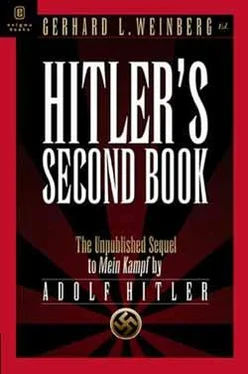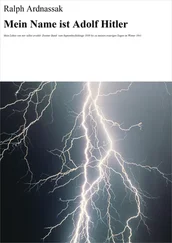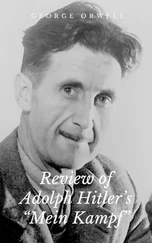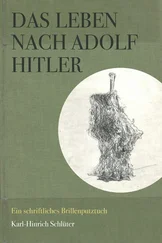HITLER’S SECOND BOOK
The Unpublished Sequel to Mein Kampf by Adolf Hitler
In August, 1925, on the occasion of the writing of the second volume, I formulated the fundamental ideas of a National Socialist foreign policy, in the brief time afforded by the circumstances. Within the framework of that book I dealt especially with the question of the Southern Tyrol, which gave rise to attacks against the Movement as violent as they were groundless. In 1926, I found myself forced to have this part of the second volume published as a special edition. I did not believe that by so doing I would convert those opponents who, in the hue and cry over the Southern Tyrol, saw primarily a welcome means for the struggle against the hated National Socialist Movement. Such people cannot be taught better because the question of truth or error, right or wrong, plays absolutely no part for them. As soon as an issue seems suitable for exploitation, partly for political party purposes, partly even for their highly personal interests, the truthfulness or rightness of the matter at hand is altogether irrelevant. This is all the more the case if they can thereby inflict damage on the cause of the general awakening of our Folk. For the men responsible for the destruction of Germany, dating from the time of the collapse, are her present rulers, and their attitude of that time has not changed in any respect up to now. Just as at that time they cold heartedly sacrificed Germany for the sake of doctrinaire party views or for their own selfish advantage, today they likewise vent their hatred against anyone who contradicts their interests, even though he may have, a thousandfold, all the grounds for a German resurgence on his side. Even more. As soon as they believe the revival of our Folk, represented by a certain name, can be seen, they usually take a position against everything that could emanate from such a name. The most useful proposals, indeed the most patently correct suggestions, are boycotted simply because their spokesman, as a name, seems to be linked to general ideas which they presume they must combat on the basis of their political party and personal views. To want to convert such people is hopeless.
Hence in 1926, when my brochure on the Southern Tyrol was printed, I naturally gave not a second’s thought to the idea that I could make an impression on those who, in consequence of their general philosophical and political attitude, already regarded me as their most vehement opponent. At that time I did entertain the hope that at least some of them, who were not at the outset malicious opponents of our National Socialist foreign policy, would first examine our view in this field and judge it afterward. Without a doubt this has also happened in many cases. Today I can point out with satisfaction that a great number of men, even among those in public political life, have revised their former attitude with respect to German foreign policy. Even when they believed they could not side with our standpoint in particulars, they nevertheless recognised the honourable intentions that guide us here. During the last two years, of course, it has become clearer to me that my writing of that time was in fact structured on general National Socialist insights as a premise. It also became clearer that many do not follow us, less out of ill will than because of a certain inability. At that time, within the narrowly drawn limits, it was not possible to give a real fundamental proof of the soundness of our National Socialist conception of foreign policy. Today I feel compelled to make up for this. For not only have the attacks of the enemy been intensified in the last few years, but through them the great camp of the indifferent has also been mobilised to a certain degree. The agitation that has been systematically conducted against Italy for the past five years threatens slowly to bear fruit: resulting in the possible death and destruction of the last hopes of a German resurgence.
Thus, as has often happened in other matters, the National Socialist Movement in its foreign policy position stands completely alone and isolated within the community of the German Folk and its political life. The attacks of the general enemies of our Folk and Fatherland are joined inside the country by the proverbial stupidity and ineptitude of the bourgeois national parties, the indolence of the broad masses, and by cowardice, as a particularly powerful ally: the cowardice that we can observe today among those who by their very nature are incapable of putting up any resistance to the Marxist plague, and who, for this reason, consider themselves downright lucky to bring their voices to the attention of public opinion in a matter which is less dangerous than the struggle against Marxism, and which nevertheless looks and sounds like something similar to it. For when they raise their clamour over the Southern Tyrol today, they seem to serve the interests of the national struggle, just as, conversely, they come as close as they can to standing aside from a real struggle against the worst internal enemies of the German nation. These patriotic, national, and also in part Folkish champions, however, find it considerably easier to launch their war cry against Italy in Vienna or München under benevolent support and in union with Marxist betrayers of their Folk and Fatherland, rather than fight an earnest war against these very elements. Just as so much nowadays has become appearance, the whole national pretence by these people has for a long time been only an outward show which, to be sure, gratifies them, and which a great part of our Folk does not see through.
Against this powerful coalition, which from the most varied points of view is seeking to make the question of the Southern Tyrol the pivot of German foreign policy, the National Socialist Movement fights by unswervingly advocating an alliance with Italy against the ruling Francophile tendency. Thereby the Movement, in contradistinction to the whole of public opinion in Germany, emphatically points out that the Southern Tyrol neither can nor should be an obstacle to this policy. This view is the cause of our present isolation in the sphere of foreign policy and of the attacks against us. Later, to be sure, it will ultimately be the cause of the resurgence of the German nation.
I write this book in order to substantiate this firmly held conception in detail and to make it understandable. The less importance I attach to being understood by the enemies of the German Folk, the more I feel the duty of exerting myself to present and to point out the fundamental National Socialist idea of a real German foreign policy to the national minded elements of our Folk as such, who are only badly informed or badly led. I know that, after a sincere examination of the conception presented here, many of them will give up their previous positions and find their way into the ranks of the National Socialist Freedom Movement of the German Nation.
They will thus strengthen that force which one day will bring about the final settlement with those who cannot be taught because their thought and action are determined not by the happiness of their Folk, but by the interests of their party or of their own person.
Politics is history in the making. History itself is the presentation of the course of a Folk’s struggle for existence.
I deliberately use the phrase struggle for existence here because, in truth, that struggle for daily bread, equally in peace and war, is an eternal battle against thousands upon thousands of resistances, just as life itself is an eternal struggle against death. For men know as little why they live as does any other creature of the world. Only life is filled with the longing to preserve itself.
Читать дальше












